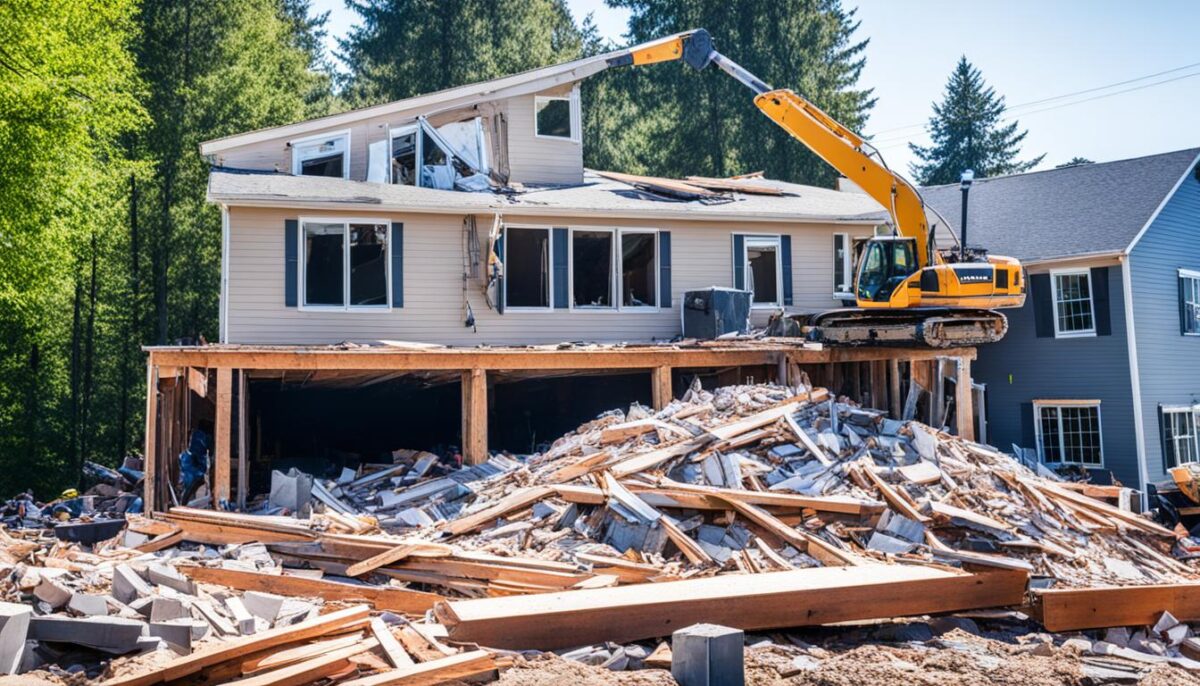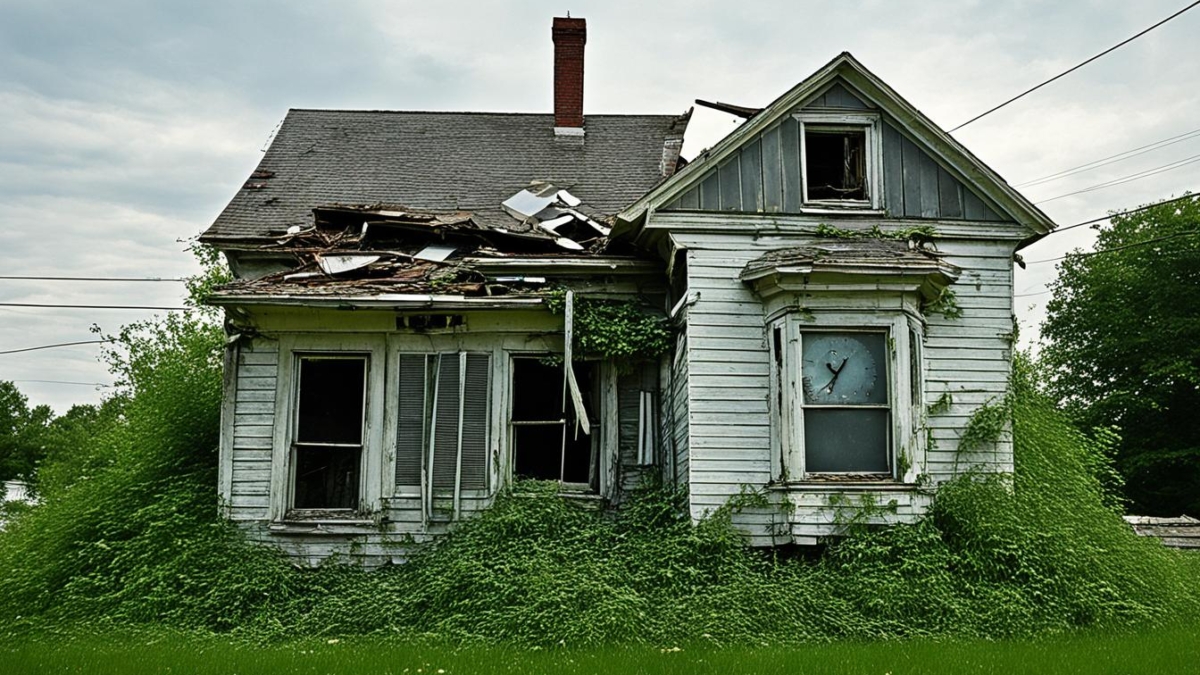Welcome to our comprehensive guide on home renovations! If you’re planning to renovate your home, one of the most important factors to consider is the timeline. Understanding how long home renovations take is crucial for effective planning and managing expectations. In this article, we’ll explore the timeline of home renovations, covering various factors that can affect the duration and providing tips for efficient project management.
Whether you’re considering a small bathroom update or a full-scale kitchen remodel, it’s essential to have a realistic idea of the time investment required. The timeline for home renovations can vary depending on the complexity of the project, availability of materials, and hiring of professionals. By gaining insights into typical timelines and understanding the factors that influence them, you’ll be able to plan your renovation effectively.
Stay tuned for the following sections in this article, where we’ll delve deeper into the factors affecting renovation timelines, provide an overview of typical timelines for different types of home renovations, and share valuable tips for managing your renovation project efficiently. Let’s get started and ensure your home renovation journey is a smooth and successful one!
Factors Affecting Renovation Timelines
When it comes to home renovations, the timeline can vary significantly depending on several factors. By understanding these factors, you’ll have a better grasp of what influences the duration of your project, allowing you to plan and budget accordingly.
Size and Complexity of the Project
One of the primary factors that affect renovation timelines is the size and complexity of the project. Larger renovations, such as whole-house remodels or major structural changes, tend to take longer to complete compared to smaller updates or cosmetic changes. Additionally, renovations that involve intricate designs, custom features, or unique materials may require extra time for planning, sourcing, and installation.
Budget and Resources
Your budget and available resources can also impact the duration of your home renovation. A larger budget allows for hiring more skilled professionals and acquiring high-quality materials, which can expedite the process. On the other hand, a limited budget may require you to prioritize certain aspects of the project or opt for more cost-effective alternatives, potentially extending the timeline.
Availability of Materials
The availability of materials can be a significant factor in renovation timelines, especially when dealing with specialty or custom items. Delays in sourcing materials, such as cabinetry, flooring, or fixtures, can prolong the construction phase. It’s essential to consider lead times and ensure that all necessary materials are readily available before commencing the renovation.
Hiring Professionals
The hiring of professionals, such as contractors, architects, or designers, can also impact the duration of your renovation. Collaborating with experienced and reputable professionals can streamline the project, as they have the necessary expertise and resources to handle various aspects efficiently. However, it’s crucial to consider their availability and schedule to avoid any potential delays.
By taking these factors into account, you can better understand how renovation timelines can vary and make informed decisions to ensure a successful and timely home remodeling process.

Typical Timelines for Home Renovations
When planning a home renovation, one of the key considerations is the timeline. Understanding how long specific renovations typically take can help you better plan your project and set realistic expectations. Below, we provide a breakdown of the estimated timelines for different types of home renovations.
Bathroom Updates
For small bathroom updates, such as refreshing fixtures or replacing tiles, you can expect the renovation to take approximately 1-2 weeks. This timeframe allows for demolition, installation, and finishing touches.
Kitchen Remodels
A full-scale kitchen remodel, including cabinet replacement, countertop installation, and appliance upgrades, typically takes about 4-6 weeks. This duration accounts for the complexity of the project, including plumbing, electrical work, and any necessary structural changes.
Bedroom Renovations
Renovating a bedroom, which may involve painting, flooring, and updating fixtures, usually takes around 2-3 weeks. This timeframe allows for the completion of multiple tasks, transforming the space into a refreshed and inviting sanctuary.
Basement Conversions
Converting a basement into usable living space, such as a home office or a media room, generally requires 6-8 weeks to complete. This timeline includes insulation, flooring, drywall installation, and adding any necessary plumbing or electrical components.
Whole-House Renovations
For extensive whole-house renovations, where multiple rooms or areas are being updated, the timeline can range from 3 months to over a year. The duration depends on the scope of the project, including structural changes, rewiring, plumbing updates, and any additional construction work required.
It’s important to note that these are typical timelines, and the actual duration may vary depending on various factors, such as the size of your home, the extent of the renovations, and any unforeseen complications that may arise during the process. Consulting with a professional contractor can provide you with a more accurate estimate based on your specific project.

Having a clear understanding of the typical timelines for home renovations empowers you to plan effectively and ensure a smooth renovation process. By allowing sufficient time for each stage of the project, you can minimize stress and interruptions, ultimately achieving the desired transformation for your home.
Tips for Managing Renovation Timelines
Efficiently managing the timelines of your home renovation project is crucial to ensure a smooth and stress-free experience. By following these practical tips and strategies, you can optimize the efficiency of your renovation process and minimize unnecessary delays.
First and foremost, start by creating a detailed project plan. Outline all the tasks and milestones involved, from the initial design phase to the final finishing touches. Breaking down the renovation process into smaller, manageable steps will enable you to stay organized and track progress effectively.
Establishing clear communication with your contractors and tradespeople is also essential. Regularly communicate with them to make sure everyone is on the same page regarding schedules, deadlines, and expectations. This open line of communication will allow for prompt decision-making and minimize any potential miscommunication or delays.
Furthermore, maintaining a flexible mindset is key to managing renovation timelines effectively. Unexpected issues or changes are bound to occur during the renovation process, so it’s important to be adaptable. By being open to alternative solutions and adjusting your plans when necessary, you can mitigate any setbacks and keep the project moving forward.
Lastly, set realistic expectations for the project timeline. Understand that home renovations often take longer than anticipated, especially if unforeseen challenges arise. Avoid rushing the process and instead focus on quality workmanship. By managing your time expectations realistically, you can reduce stress and ensure that the final result meets your standards.


Add a Comment